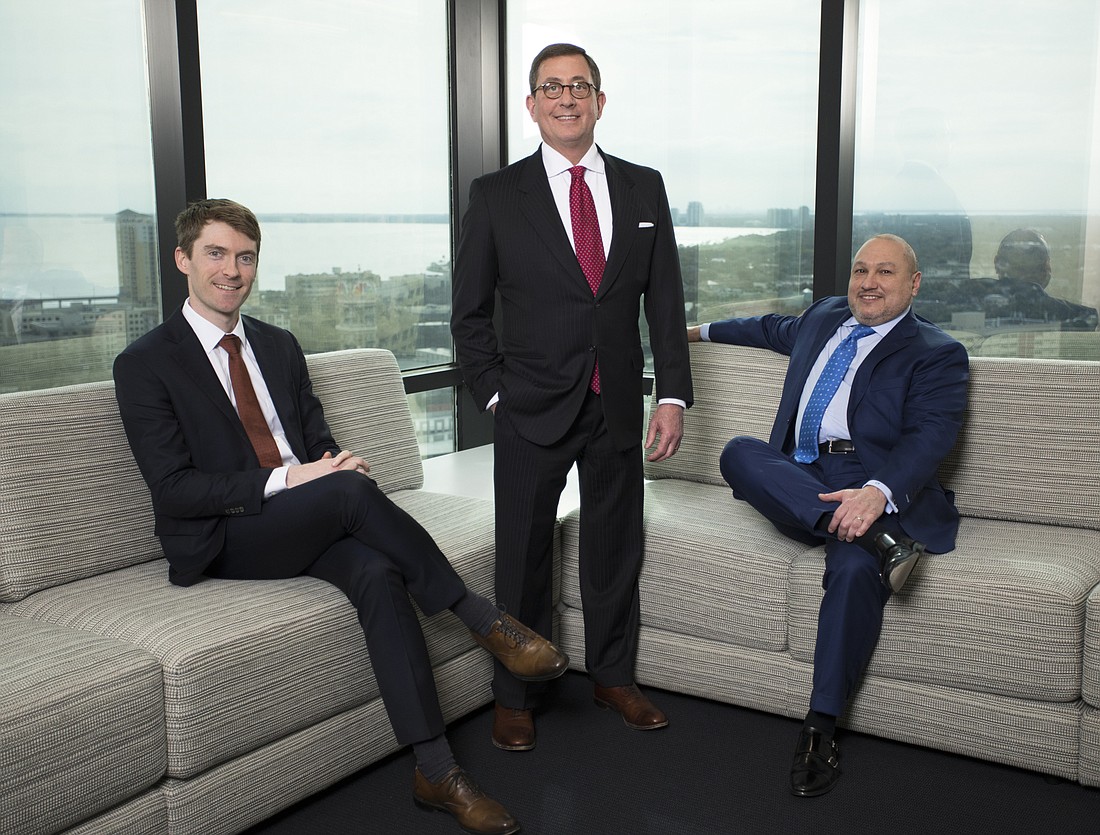- December 13, 2025
-
-
Loading

Loading

Tampa attorneys David Weinstein, Christopher Torres and Ryan Hopper were holed up in a conference room the Friday before a three-day weekend in 2018, chatting with jury consultants.
The lawyers were preparing for a civil trial. They were defending their client, phosphate and potash giant Mosaic, against a lawsuit from Tampa resident Rhonda Williams, whose home is 3 miles from a Mosaic fertilizer plant. Williams, through South Carolina personal injury attorney Billy Walker, alleged plant emissions caused her health problems — pulmonary hypertension, diabetes and more, plus side effects from treatment. Walker, according to court records, also contended Williams’ home had “no present value” due to the emissions. She sought $63 million, in the case originally brought in 2014.